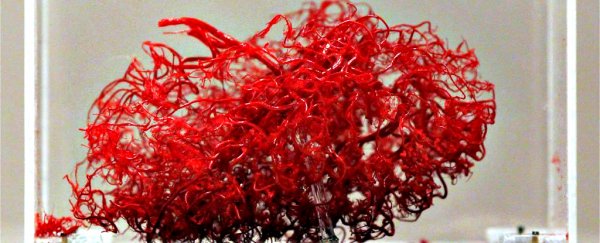One of the biggest challenges in treating brain cancer has been getting drugs to cross the blood-brain barrier and attack tumours where they're needed.
But scientists say they've now developed a truly soluble liquid aspirin that can make its way into the brain, and, in the lab at least, kill cancerous glioblastoma cells without harming healthy brain tissue.
The research hasn't been published in a peer-reviewed journal as yet, so we need to take it with a big pinch of salt for now. But scientists from the Brain Tumour Research Centre at the University of Portsmouth in the UK just presented it at the Brain Tumours 2016 conference in Poland.
"This is a potential game-changer for research into brain tumours and clearly shows what sustainable research is able to achieve," said chief executive of the centre, Sue Farrington Smith. "It is science like this that will enable us to eventually find a cure for this devastating disease which kills more children and adults under the age of 40 than any other cancer."
The blood-brain barrier is like a shield that keeps invading pathogens out of the brains' blood supply, and only allows water, some gases, and lipid-soluble molecules to pass through.
That's a great protective mechanism, but it's also posed a significant challenge for scientists who want to deliver drugs directly to the brain, and it's part of the reason that brain tumours have such high mortality rates.
It was only last year that scientists announced they'd been able to get chemotherapy drugs across the blood-brain barrier for the first time, by using ultrasound to effectively part the brain's protective curtain.
But now the British team say they've created liquid aspirin that, for the first time, is truly soluble, which means it can travel directly into the brain.
It was created by reformulating aspirin with two additional ingredients (no word as yet on what those are) in soluble form, and they've named the end result 'IP1867B'. Not really as catchy as 'liquid aspirin', but we're sure they had their reasons.
The team has since tested IP1867B against glioblastoma - one of the most aggressive types of brain tumour, which kills thousands of patients each year - with promising results.
In the lab, they took glioblastoma cells they'd extracted from adults and children with brain tumours, and then exposed them to various formulations of IP1867B.
Regardless of how the three ingredients were separated or applied, they were 10 times more effective than any combination of currently available treatments, the researchers found.
Importantly, the ingredients didn't have an effect on normal brain cells.
Of course, treatments rarely work out in humans the way they do in the lab, and before scientists even get to that point they'll need to test the drug out against cancer in mice, or other experimental models, first.
They'll also need to have their research peer reviewed and replicated, to show that this wasn't a fluke.
But in addition to potentially developing a new type of brain cancer treatment, the researchers say the soluble aspirin will be able to make the drug more palatable for regular, everyday use.
"'Soluble' aspirins currently on the market are not completely soluble and still contain grains that cause gastric side effects," the researchers explain in a press release.
With further testing, this new formulation could offer a better solution - and, potentially, a whole new way to treat brain tumours.
